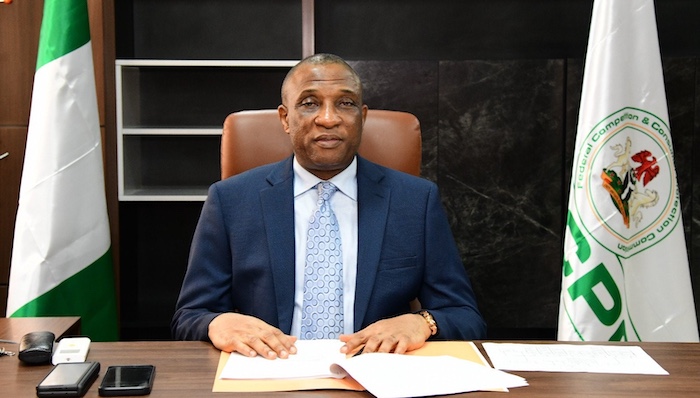
The Federal Competition and Consumer Protection Commission (FCCPC) has welcomed the Central Bank of Nigeria’s (CBN) draft guidelines mandating banks to refund customers for failed Automated Teller Machine (ATM) transactions within 48 hours, describing the move as a major step toward strengthening consumer confidence in the financial sector.
The proposed Draft Guidelines on the Operations of Automated Teller Machines in Nigeria were issued shortly after the FCCPC published its Consumer Complaints Data Report for March to August 2025. The report revealed that the banking and fintech sectors recorded the highest number of consumer complaints nationwide — over 3,000 cases in banking alone — and facilitated the recovery of about ₦10 billion for customers across 30 sectors.
Common grievances identified in the report included failed transactions, unauthorised deductions, and delayed refunds — issues the CBN’s draft guidelines are specifically designed to address.
FCCPC’s Executive Vice Chairman and Chief Executive Officer, Mr. Tunji Bello, commended the CBN’s initiative, calling it “a timely and long-awaited correction to a persistent consumer challenge.”
“It is consistent with what the FCCPC has been advocating, given the number of complaints we receive about failed transactions,” Bello said. “We commend the CBN for this decisive step, which will ease the burden on consumers and rebuild trust in financial services.”
The Commission further noted that the proposed guidelines align with the Federal Competition and Consumer Protection Act (FCCPA) 2018, particularly Sections 17(g), (h), (l), (s), and (t), which mandate the elimination of unfair practices, the resolution of consumer complaints, and the protection of consumer interests across all sectors.
The FCCPC urged the prompt adoption and implementation of the draft policy, saying its enforcement would bring immediate relief to consumers suffering from delayed or unresolved electronic transaction reversals. The Commission added that the move would also enhance accountability within the banking sector and reinforce regulatory collaboration.
To ensure effective execution, the FCCPC announced plans to work closely with the CBN to establish a compliance monitoring framework and enforce redress mechanisms for cases where banks fail to meet the 48-hour refund deadline.
The Commission also reminded consumers that unresolved ATM or electronic transaction issues should first be reported to their banks or the CBN. If still unresolved, complaints can be escalated to the FCCPC via its Complaint Portal by email or by phone.
According to the FCCPC, closer cooperation among regulators will not only accelerate dispute resolution but also build lasting consumer trust in Nigeria’s expanding digital financial ecosystem.
Melissa Enoch



